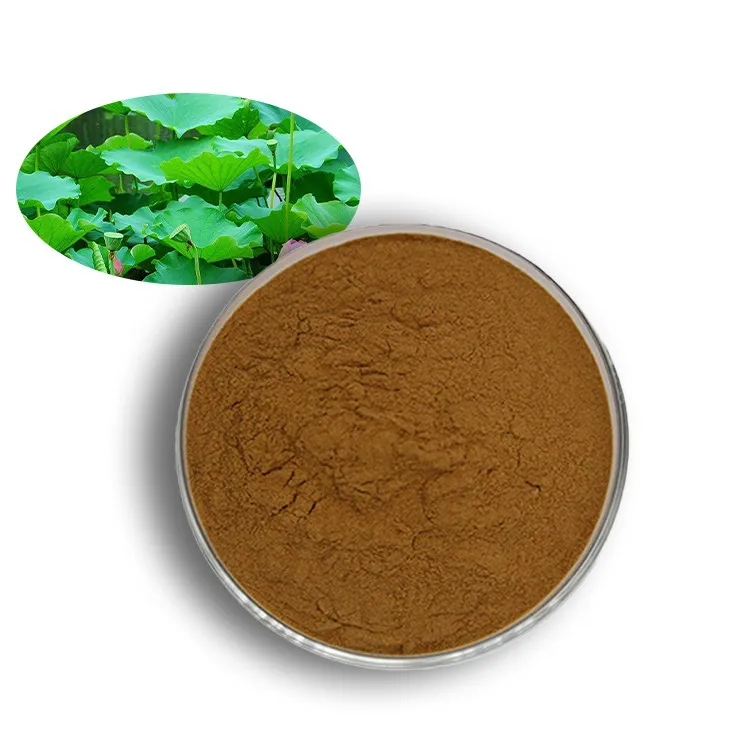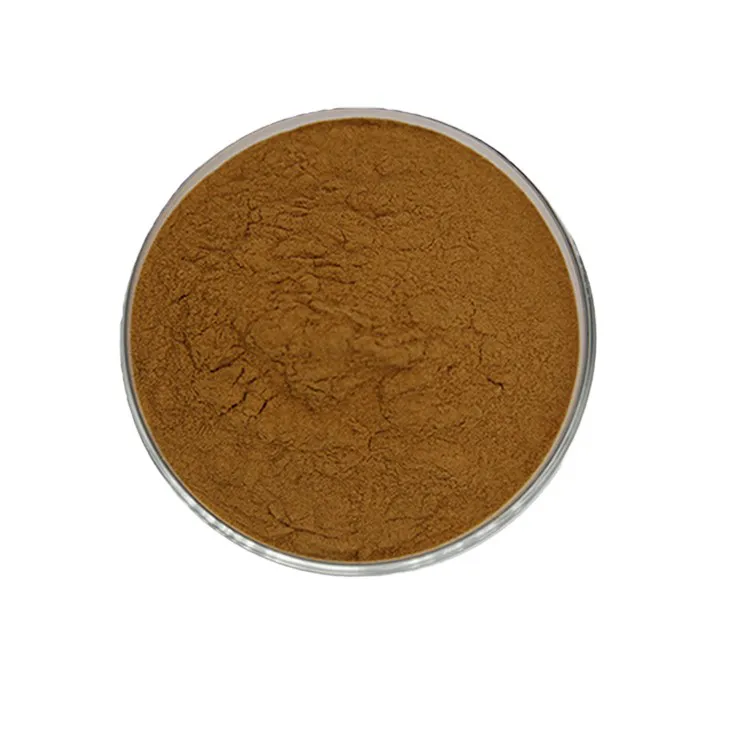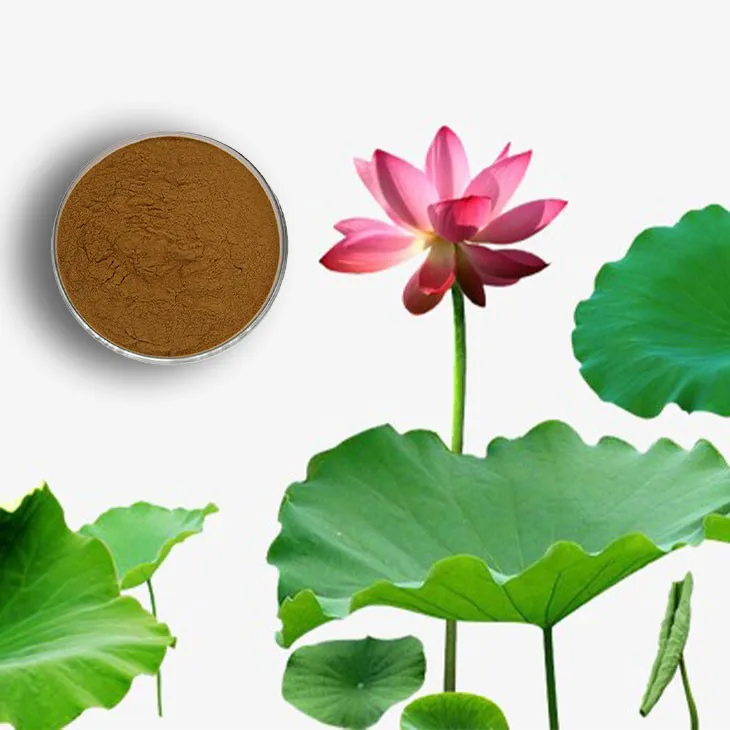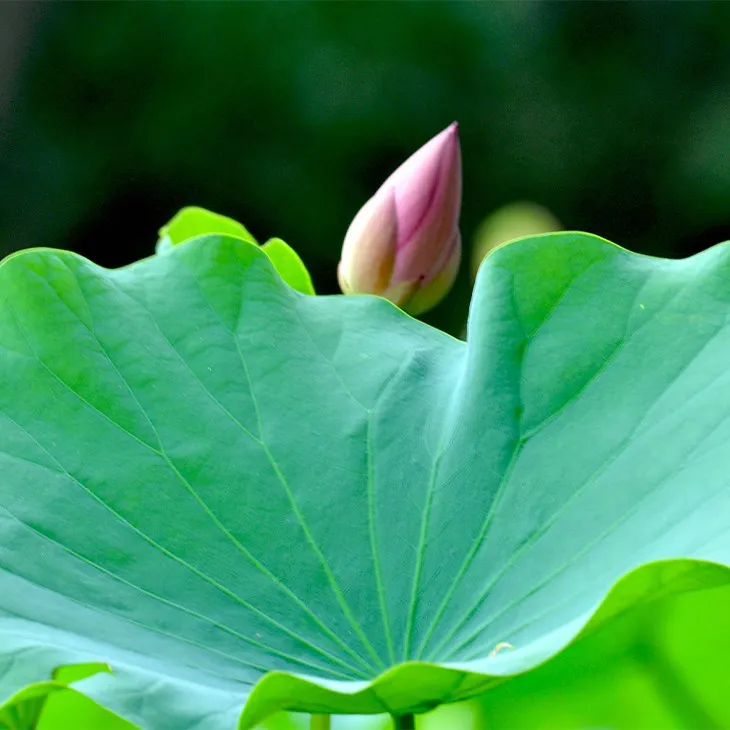- 0086-571-85302990
- sales@greenskybio.com
Two Bases for the Quality of Lotus Leaf Extract: Potency and Purity.
2024-12-21

1. Introduction
The lotus leaf has long been recognized in traditional medicine for its various potential health benefits. As the demand for natural health products increases, Lotus leaf extract has gained significant popularity. However, when it comes to evaluating the quality of Lotus leaf extract, two fundamental aspects, namely potency and purity, are of utmost importance. These two elements not only determine the effectiveness of the extract but also its safety for use in different applications.

2. The Significance of Potency in Lotus leaf extract
2.1. Role in Weight Management
Potency plays a crucial role in the function of lotus leaf extract, especially in areas such as weight management. The active compounds in lotus leaf extract are believed to have properties that can aid in reducing body fat. A highly potent extract contains a higher concentration of these active substances, which means it has a greater potential to influence the body's metabolism in a way that promotes weight loss. For example, certain components in the lotus leaf may interact with the body's digestive system to reduce the absorption of dietary fats or increase the rate of fat burning. When the extract is potent, these effects are more likely to be observed, leading to more significant results in weight management programs.
2.2. Impact on Blood - Sugar Regulation
In addition to weight management, the potency of lotus leaf extract is also vital for blood - sugar regulation. Some constituents in the lotus leaf have been shown to have an impact on glucose metabolism. A more potent extract can better modulate the body's blood - sugar levels. It may enhance the function of insulin, the hormone responsible for regulating blood sugar, or it may directly affect the cells' ability to take up glucose from the bloodstream. This is particularly important for individuals with diabetes or those at risk of developing diabetes. By using a highly potent lotus leaf extract, there is a greater chance of achieving stable blood - sugar levels, which is essential for overall health.
3. The Importance of Purity in Lotus Leaf Extract
3.1. Ensuring Freedom from Harmful Substances
Purity is an equally critical aspect when considering the quality of lotus leaf extract. One of the primary concerns is ensuring that the extract is free from harmful substances. During the growth of lotus plants, they may be exposed to pesticides, heavy metals, or other contaminants in the environment. If these substances are present in the extract, they can pose serious risks to human health. For instance, heavy metals such as lead, mercury, or cadmium can accumulate in the body over time and cause damage to the nervous system, kidneys, and other organs. A high - purity lotus leaf extract, on the other hand, undergoes rigorous purification processes to remove these potential contaminants, making it safe for consumption.
3.2. Avoiding Excessive Additives
Another aspect of purity is the absence of excessive additives. In the production of lotus leaf extract, some manufacturers may add fillers, preservatives, or other additives to enhance the appearance or shelf - life of the product. However, excessive use of these additives can be a problem. For example, certain preservatives may cause allergic reactions in some individuals. A pure lotus leaf extract, which contains only the necessary components of the lotus leaf and minimal, if any, additives, is more suitable for use in health - related products. It provides a more natural and safe option for consumers who are looking for the benefits of lotus leaf without the potential risks associated with unnecessary additives.
4. The Need for Continuous Improvement in Extraction and Quality - Control Processes
4.1. Optimization of Extraction Methods
To maintain high levels of potency and purity in lotus leaf extract, continuous improvement in extraction processes is essential. Different extraction methods can yield different results in terms of the concentration and quality of the active compounds. For example, solvent - based extraction methods need to be carefully selected to ensure that the solvent used does not introduce impurities or degrade the active components. Newer extraction techniques, such as supercritical fluid extraction, are being explored as they may offer more efficient and cleaner ways to extract the valuable compounds from lotus leaves. By optimizing the extraction method, it is possible to increase the potency of the extract while maintaining its purity.
4.2. Stringent Quality - Control Measures
In addition to extraction, quality - control processes play a vital role in ensuring the quality of lotus leaf extract. This includes strict monitoring at every stage of production, from the sourcing of raw materials to the final packaging of the extract. Raw materials should be carefully selected to ensure that they come from a clean and uncontaminated source. During the manufacturing process, regular testing for potency, purity, and the presence of contaminants should be carried out. For example, advanced analytical techniques such as high - performance liquid chromatography (HPLC) can be used to accurately measure the concentration of active compounds and detect any impurities. Packaging materials should also be carefully chosen to prevent any contamination or degradation of the extract. By implementing stringent quality - control measures, manufacturers can ensure that the lotus leaf extract they produce meets the highest standards of potency and purity.
5. Conclusion
In conclusion, when evaluating the quality of lotus leaf extract, potency and purity are two non - negotiable bases. Potency determines the effectiveness of the extract in various health - related functions, such as weight management and blood - sugar regulation. Purity, on the other hand, ensures the safety of the extract by eliminating harmful substances and excessive additives. Continuous improvement in extraction and quality - control processes is crucial to maintain high levels of these two important qualities. As the demand for natural and effective health products continues to grow, ensuring the high quality of lotus leaf extract through a focus on potency and purity will be essential for the well - being of consumers and the success of the health - product industry.
FAQ:
Q1: How can we measure the potency of lotus leaf extract?
There are several ways to measure the potency of lotus leaf extract. One common method is through laboratory analysis to determine the concentration of active compounds such as alkaloids and flavonoids. These active compounds are often associated with the extract's functions in weight management or blood - sugar regulation. Another way is to conduct in - vivo or in - vitro experiments to observe the extract's biological effects, which can also reflect its potency.
Q2: Why is purity crucial for lotus leaf extract?
Purity is crucial for lotus leaf extract because it directly affects its safety and suitability for use. If the extract contains harmful substances such as heavy metals or pesticides, it can pose risks to human health. Excessive additives can also reduce the natural effectiveness of the extract. High - purity lotus leaf extract is more likely to be pure in its active components and free from contaminants, making it more suitable for use in health - related products.
Q3: What are the common methods to ensure the purity of lotus leaf extract?
To ensure the purity of lotus leaf extract, strict quality - control processes are implemented. This includes using high - quality raw materials, proper extraction techniques, and purification steps. For example, advanced extraction methods like supercritical fluid extraction can help obtain a purer extract. Additionally, purification through chromatography techniques can further remove impurities. Regular testing for contaminants such as heavy metals, pesticides, and microbial contaminants is also essential.
Q4: How does the potency of lotus leaf extract relate to its application in weight management?
The potency of lotus leaf extract is closely related to its application in weight management. Higher - potency extracts with a greater concentration of active compounds are more likely to have a significant impact on factors related to weight management. For example, certain alkaloids in lotus leaf extract may affect metabolism, appetite, or fat absorption. A more potent extract can potentially enhance these effects, leading to more effective weight management.
Q5: Can the purity of lotus leaf extract affect its long - term use?
Yes, the purity of lotus leaf extract can affect its long - term use. If the extract has low purity and contains contaminants or excessive additives, long - term use may lead to potential health problems. For example, continuous exposure to heavy metals or harmful substances can accumulate in the body over time. On the other hand, high - purity lotus leaf extract is safer for long - term use as it is free from such risks and can more consistently provide the desired health benefits.
Related literature
- Analysis of Active Compounds in Lotus Leaf Extract and Their Potency"
- "Purity Standards for Herbal Extracts: The Case of Lotus Leaf"
- "The Significance of Potency and Purity in Herbal Extracts: Focus on Lotus Leaf"
- ▶ Hesperidin
- ▶ citrus bioflavonoids
- ▶ plant extract
- ▶ lycopene
- ▶ Diosmin
- ▶ Grape seed extract
- ▶ Sea buckthorn Juice Powder
- ▶ Beetroot powder
- ▶ Hops Extract
- ▶ Artichoke Extract
- ▶ Reishi mushroom extract
- ▶ Astaxanthin
- ▶ Green Tea Extract
- ▶ Curcumin Extract
- ▶ Horse Chestnut Extract
- ▶ Other Problems
- ▶ Boswellia Serrata Extract
- ▶ Resveratrol Extract
- ▶ Marigold Extract
- ▶ Grape Leaf Extract
- ▶ blog3
- ▶ blog4
- ▶ blog5
-
Pure 85% Tomentil Extract.
2024-12-21
-
American Ginseng Root Extract
2024-12-21
-
Tongkat Ali Extract
2024-12-21
-
Eyebright Extract
2024-12-21
-
Oat Straw Extract Powder
2024-12-21
-
Aminolevulinic acid
2024-12-21
-
Licorice Root Extract Powder
2024-12-21
-
Grape Leaf Extract
2024-12-21
-
Sugarcane Extract
2024-12-21
-
Phellodendron Extract
2024-12-21
-
Saponin Extract
2024-12-21





















